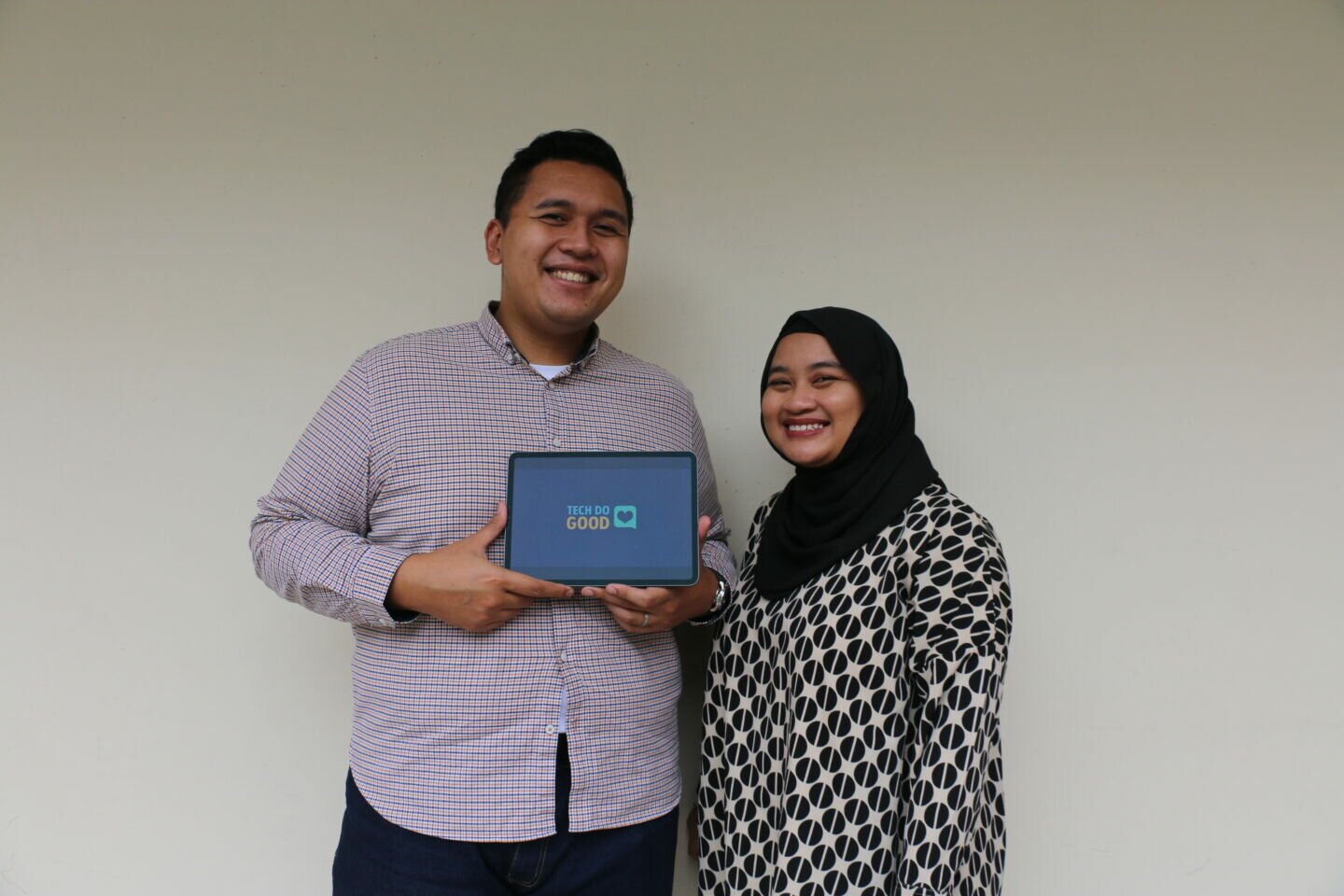Indra Jalal and Afiq Surmardi founded Tech Do Good with the intention of making access to technology more equitable.
“We started out with a vision of bringing digital access to anyone who needed it,” mentions Afiq.
In 2019, Infocomm Media Development Authority (IMDA) reported that an estimated 89 percent of resident households have access to a computer. Even without numbers, the sight of people scrolling continuously on their phones or watching Netflix shows on their daily commute suggests that digital access is seemingly a given. But Tech Do Good’s existence in a society that has one of the world’s highest digital penetration rates proves otherwise.
When Indra and Afiq were volunteering with Project Hills — a non-profit organisation that provides food and essentials to lower-income families — they grew increasingly aware of the inadequacy of digital access despite its necessity at the height of the pandemic.
Digital inequality is not just about the lack of access to a good computer and fast Wi-fi, it is also about the inability to survive in an ever-changing technological landscape
Afiq Surmardi
“We met families with multiple children sharing one device, which was usually a smartphone, for their home-based learning,” Afiq recalls. “We also saw many adults who wanted to improve their skills to get jobs with better pay, but were stuck because their whole salary went towards their daily expenses. In most of these cases, they had reached out to official platforms for help, but were delayed or held back.”
After numerous such encounters, the duo were compelled to start Tech Do Good in 2021. Through the collection, refurbishment and distribution of donated electronic devices, they want to give communities increased access to electronic devices and technical assistance. By gathering volunteers and growing a network of donors, they have since managed to distribute over 200 devices.
The only ways to navigate digital access at the moment are limited to volunteering, raising awareness and donating, since the issue is caused by larger systemic problems. “Rising costs in Singapore mean that people are constantly having to choose to either put food on the table and keep their lights on, or buy a new laptop and pay for wifi. There is no novel solution or revolutionary way to look at the problem,” Afiq explains.
Across the world, the pandemic has exacerbated, or at least revealed, society’s existing inequalities. With the rapid shift to online platforms and technologies, digital exclusion should be at the forefront of socio-economic inequity conversations. Aside from students grappling with poor digital access for their online education, workers with jobs that cannot be shifted online have been left in precarious situations.
“I think people have always realised that this could potentially become a bigger problem, but the recent pandemic has turned digital inequality from a problem at the back of our minds into a problem that can’t be ignored,” shares Afiq.
The most alarming problem of digital inequality is its impact on the social and financial aspects of people’s lives. Indra and Afiq are concerned about the limits placed on students’ prospects when they are unable to gain access to digital equipment, leaving them disadvantaged in their education. Digital exclusion is also detrimental to economic mobility, especially for lower-income families. When opportunities to elevate skills through online courses and applying for jobs online are unavailable, the access to jobs with better pay and benefits remain out of their reach.
“Digital inequality is not just about the lack of access to a good computer and fast Wi-fi, it is also about the inability to survive in an ever-changing technological landscape,” he asserts.
They seem relieved that many people already recognise that digital access is a fundamental need not yet available to everyone. “Whenever we have put out a call for device donations, we get requests to donate used electronics in droves. We haven’t really faced many problems there. Our biggest challenge is similar to most non-profits, where we are abundant in social awareness but scarce in financial resources”.
As Tech Do Good’s network of donors and beneficiaries has grown, so has their vision. They intend to start raising funds and collaborating with other organisations to widen their reach. “We’re looking to go beyond giving people access to better equipment, and see how we can better equip them with skills that can make them more employable. We want them to learn how to maximise the opportunities available with the new devices that they now have,” shares Afiq.
In a society that uses technology for daily living and for community-building, digital inclusivity needs to be ameliorated through better access and literacy. Tech Do Good currently conducts digital literacy and skills workshops for student beneficiaries, including coding classes for beginners. Now, they are planning to introduce programmes for those who are entertaining the possibility of starting a career in tech, as well as for adults who are considering a career shift towards tech.
“I hesitate to say that we’re lucky, because our volunteers have worked really hard to support us. But the opportunities presented to us have been nothing short of spectacular,” says Afiq of their success as an organisation so far.
“If we’re being completely honest, we’re taking it one day and one beneficiary at a time.”


